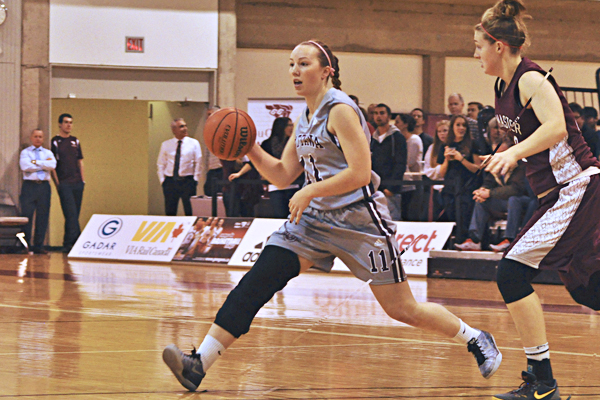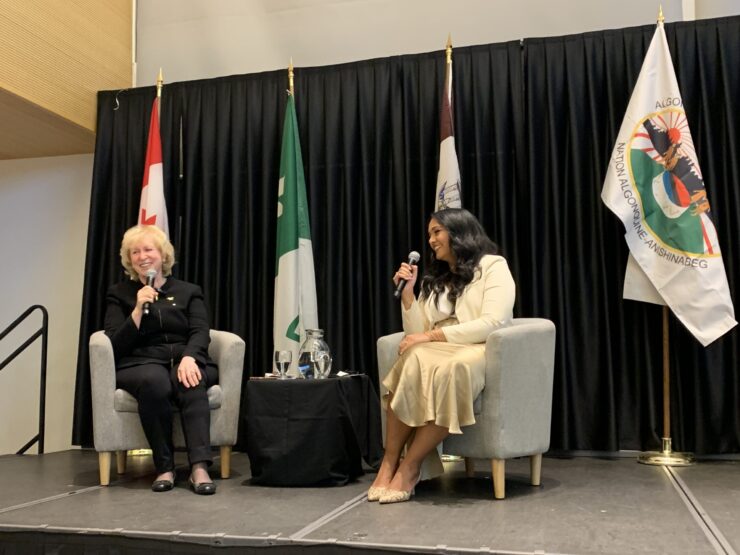“Everyone is special in their own ways; we all stand out and have something to offer”
For many premed students and young scientists at the University of Ottawa, the journey into medicine and research can often feel isolating and highly competitive. The Connecting Young Minds (CYM) conference, hosted on September 21, aims to change that. It provides clarity, guidance, and a space for students to share their journeys, challenges, and aspirations. More than just a source of information, CYM fosters a community, built on inspiration and practical support.
This year’s conference featured an impressive lineup of speakers, engaging discussions, and opportunities for attendees to connect with peers and mentors. Leading this year’s event was Julia Kemzang, a fourth year medical student whose story resonated deeply with many in the audience.
Humble and genuine, Kemzang discussed the challenges she faced on her road to medicine, delivering a powerful message of inclusivity and self-acceptance. She reminded students not to compare themselves to others, especially in a field as competitive as medicine. “Everyone is special in their own ways; we all stand out and have something to offer,” she said, striking a chord with many attendees. For students often consumed by the pressure to be “good enough,” her words were a much-needed reminder that there is space for everyone in medicine—regardless of background or identity.
Kemzang’s talk was particularly impactful for students of colour, as she addressed the unique challenges faced by Black medical students. She emphasized that inclusivity is not just a buzzword in medicine; it is a necessity. Her journey highlighted the importance of bridging gaps and breaking stereotypes while maintaining one’s humanity even in a competitive field like medicine.
Beyond Kemzang’s talk, CYM featured other inspiring speakers such as Clara Zwanziger and Alyanna Popatia, who focused on making research accessible to undergraduates. They shared how students can get involved in research early and emphasized the importance of undergraduate contributions to the scientific community. Their talks offered practical advice to help young scientists navigate research opportunities and make a meaningful impact.
CYM was not just about speeches—it was also about creating connections. Throughout the day, students had the chance to network with peers, upper-year students, and professionals in the field. From trivia sessions and shared meals to open conversations about career paths and research projects, CYM fostered a supportive environment. This made science and medicine feel a little less intimidating.
The event’s research competition showcased the impressive work of undergraduate students, proving that impactful research does not have to wait until graduate school. These presentations highlighted that even undergraduate students can make significant contributions to the scientific world, inspiring others to pursue their own research interests.
Ultimately, Connecting Young Minds is more than just a one-day event. It is a platform that offers students inspiration, practical advice, and a sense of belonging in fields that often seem inaccessible. For premed students and aspiring scientists, CYM provides not only guidance,but also the reassurance that they are not alone in their journeys—and that they, too, have something special to offer.





